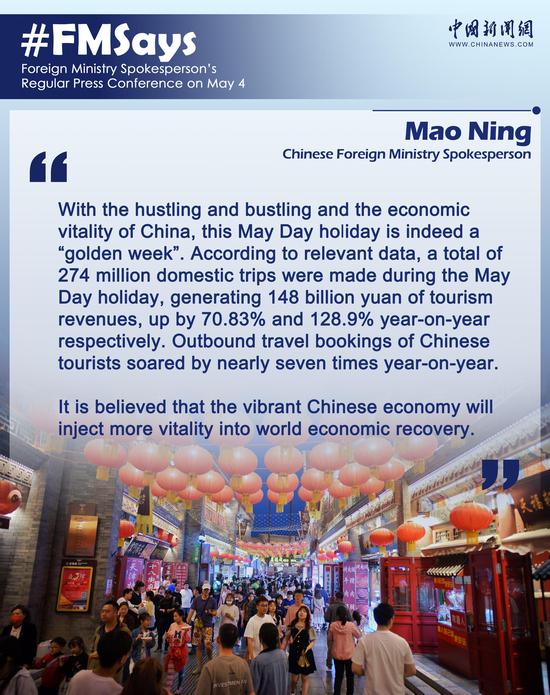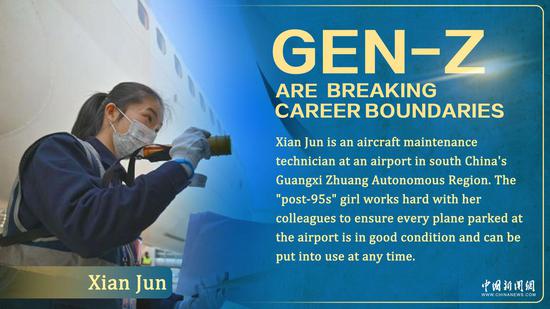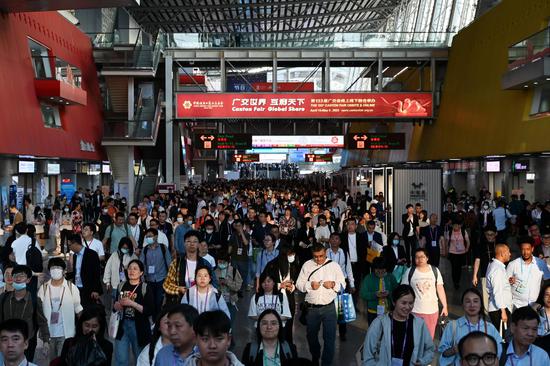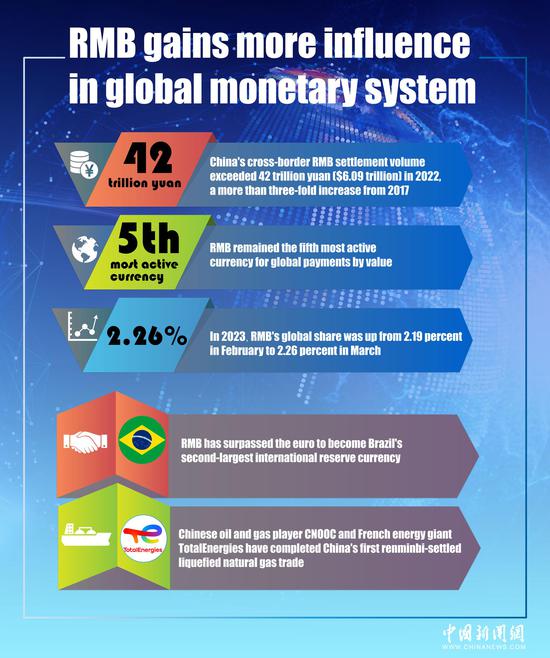Editor's note: China-U.S. relations have gone through thick and thin over the past decades. This page takes a close look at the economic problems faced by Chinese enterprises operating in the U.S. as well as the Janus-faced China policy pursued by successive U.S. administrations.
The financial performance of Chinese companies operating in the United States is slightly down, with a dour outlook in years ahead, according to an annual survey by a nonprofit organization, but they are still eager to do business in the country.
"Chinese companies in the U.S. performed slightly worse than the previous year, with cautious expectations for subsequent developments," said a report released on Monday by the China General Chamber of Commerce-USA.
Another finding in the report, based on the 2023 annual business survey conducted in February and March by the CGCC, is that tensions in U.S.-China relations and persistent inflation are top concerns for Chinese companies in the U.S..
"Chinese companies operating in the U.S. continued to face an exceptionally complex environment," the report said.
"While challenges do exist, the cumulative synergy and the benefits of the partnership between the U.S. and China far outweigh any risks," Hu Wei, chairman of the CGCC and president of the Bank of China's U.S. branches, wrote in the report.
Abby Li, director of corporate communications and research at the CGCC and one of the report's authors, revealed the report's data, findings and suggestions.
Twenty-four percent of Chinese companies surveyed experienced a revenue decline of more than one-fifth; 19 percent expected their revenues in the U.S. to decline over the next two years, compared with 14 percent in last year's survey.
Eighty-one percent of respondents were concerned with the bilateral tensions between the U.S. and China, and 68 percent expressed concerns over inflation in the U.S. and its economic impact. More than 80 percent of Chinese companies were satisfied (or neutral) with all aspects of the U.S. business environment. Fluctuating business cycles in the past helped Chinese companies cope with short-term fluctuations.
Based on survey result analysis and interviews with senior management, the report made five recommendations for Chinese companies in the U.S.: Do not let a crisis go to waste; build a systematic approach to increase the success rate of portfolio expansion; leverage the U.S. market's propensity for innovation; embrace new digital tools; treat North America as a single market; and consider "regional expansion "to Canada and Mexico.
In an interview after the report launch, Li told China Daily that the impact of U.S.-China relations on both Chinese enterprises in the U.S. and U.S. enterprises in China is significant and palpable, affecting their operations and strategies.
"In the current environment, Chinese enterprises in the U.S. place great importance on adhering to U.S. compliance standards, as this is crucial for international market operations," Li said. "For example, they invite third-party professional institutions and law firms to adapt to local U.S. standards, terms and laws to ensure the lawful and healthy operation of their enterprises.
"Additionally, the Chinese companies contribute to social services and shoulder social responsibility, which are also crucial for them."
A bridge role
Pin Ni, CGCC vice-chair and the president of Wanxiang America Corp, said the report reflects CGCC members' common voice: The enterprises all want to continue to invest more in the U.S. and play a bridge role between the U.S. and China; on the other hand, the pressure of the circumstances is relatively high.
"The recession in the U.S. has just arrived, and it is a real challenge. The deterioration of U.S.-China relations has a greater impact on everyone," he said.
"As long as the flow of people, logistics and capital is constant, the business opportunities will come. Such opportunities will bring value and benefit to both China and the U.S.," Ni said.
"We have to do a lot of work in promoting U.S.-China exchanges. Don't let the current difficulties stop our work. Don't give up. We are at the forefront, and if we give up, there will be a vacuum in U.S.-China exchanges. Once such vacuum appears, there will surely be other forces and voices to fill it, which is not good for anyone."
There were several panel discussions after the report launch, whose participants included Chinese and U.S. officials, CGCC leaders, and Chinese and U.S. business executives.
They specified the difficulties encountered by Chinese companies in the U.S. in recent years. Still, they expressed a positive attitude toward the future economic and trade relationship with the U.S..
Xu Xueyuan, the charge d'affaires at the Chinese embassy in Washington, described the U.S. as an "investment hot spot" and said that the high volume of two-way trade reveals the sober mindset of the business community and the strong market forces.
"It also tells us one thing — winning cooperation has the support from the people. As an important force for Chinese modernization, Chinese businesses are of great significance to closer U.S.-China trade ties and global economic recovery," she said.
Diane Farrell, deputy under secretary for international trade at the U.S. Department of Commerce, said that the bilateral economic ties and investments have deepened business relationships between the U.S. and China, offering opportunities to both their countries.
"Chinese companies, by our count, have invested over $53 billion in U.S. facilities, supporting over 119,000 direct jobs in the United States."
Ben Jurjevich, the business development manager of BYD, a major Chinese conglomerate, said: "We still see a very strong future in the U.S.. So, you know, we still have a very strong market share for transit buses. We have some new products we're very excited about in the U.S., including our electric school bus. And so, business is good."
The professional "helpers" providing services to Chinese companies entering and operating in the U.S. are also confident.
"As part of the U.S.-China business community, it's our job to try and weave together the different strands of the different communities to try and sort of bridge them together," said Lanier Saperstein, the banking partner and co-chair of the U.S.-China Practice Group at Dorsey &Whitney LLP.
Better understanding
"We don't necessarily need to agree on everything," he said. "China and the U.S. have very different systems. That's OK. They don't need to have our system, and the U.S. doesn't need to adopt China's system. But I do think there are opportunities to do business and to cooperate and have a much better understanding of one another."
Saperstein said the business community could help smoothen bilateral relations.
Philip Berkowitz, who is working as U.S. practice group leader of Littler Mendelson, an employment and labor law firm, said these are challenging times for Chinese companies in the U.S..
"But I would say that overall, according to my work experiences, Chinese businesses are working very hard to build their businesses here and to comply with the law," he said. "They understand the importance of compliance. They very much want to get things right in the United States.
"They're under real scrutiny from regulators and the press. And I think they're doing an incredible job with their compliance testing and with their commitment to the rule of law here in the U.S.," he said.


















































 京公网安备 11010202009201号
京公网安备 11010202009201号